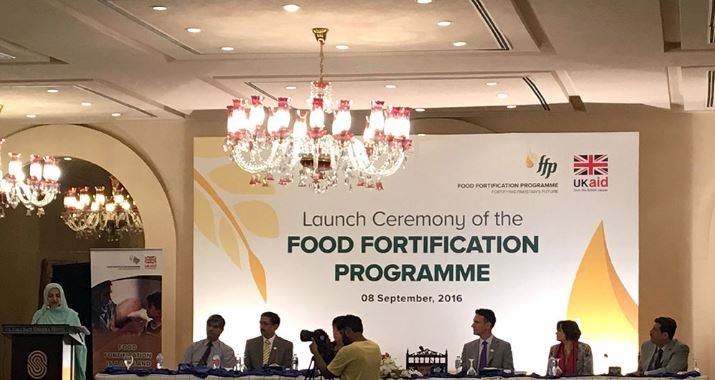Reducing iron deficiency anaemia by a third and vitamin A deficiency by a quarter are the topline targets of the project, which is being funded by the UK government’s Department for International Development (DFID) and implemented by the Micronutrient Initiative and Mott MacDonald. This will be achieved by increasing the micronutrient content of flour and edible oil or ghee through fortification.
Asked why the project leaders had opted for fortification as an approach for tackling malnutrition in Pakistan, Dr Tausif Janjua, technical director of the programme, explained that in Pakistan, consumption of both wheat flour and edible oil or ghee is quite high - over 110 kg and 15 kg per person per year respectively.
“Since both wheat flour and oil are everyday staples consumed by nearly everyone, fortifying these foods was seen as an effective and cost-effective approach for providing enhanced nutrition to reduce micronutrient deficiencies,” he told NutraIngredients.
One of the potential shortcomings of fortification programmes is that they don’t always reach those who most need them, namely those in rural areas and abject poverty.
However, Dr Janjua said the reach of the project would be maximised by covering all of the flour mills and edible oil/ghee mills in Pakistan, and that the Pakistani government and food industry were on board with the programme.
“The wheat flour fortified through these mills will reach more than 50% of the population and edible fortified oil will reach two thirds of the population. The poor will be able to access the fortified food through the flour and oil mills,” he said.

The Micronutrient Initiative works in multiple countries in Asia and Africa but Dr Janjua said it had chosen Pakistan as the focus for this latest initiative because of the “high levels of micronutrient deficiencies” and the “clear need for interventions to tackle these deficiencies”.
Micronutrient defciency: a macro-problem
According to the National Nutrition Survey 2011, nearly half of all children in Pakistan under the age of five are stunted. Stunting is a result of malnutrition in the first two years of a child’s life and lmits height as well as development. 15% of children suffer from wasting and 32% are underweight.

The study also found that over half of all Pakistani women of reproductive age are anaemic and 37% are iron-deficient. 62% of children also suffer from anaemia, hindering their growth and making them vulnerable to disease, disability and death. Vitamin A and vitamin D deficiencies are also a problem: 67% of women of reproductive age, 69% of pregnant women and 40% of children are vitamin D deficient, whilst 42% of non-pregnant women, 46% of pregnant women and 54% of children are lacking in vitamin A.
“For a nation to be healthy, the women and girls need to be healthy as the women are the drivers of development. Pakistan is losing 2-3% of its GDP annually because of malnutrition. Therefore urgent action is needed to address the issue,” said Dr Janjua.
Whilst this is one of the largest fortification programmes to date to be implemented in Pakistan, it is not the first. The Micronutrient Initiative has already had some success with reducing iodine deficiency in Pakistan though a salt iodisation programme - more than 60% of edible salt is now adequately iodised. This has slashed severe iodine deficiency from 37% and 23% in women of reproductive age and school-age children to just 3 and 2% respectively.
